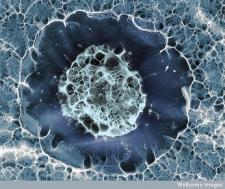Delivering Revolutionary Cell/Gene Therapies to the Underserved, Creating More Accessibility
By David Jensen,
The California Stem Cell Report
| 04. 24. 2023
What good is a “miraculous” cure or a revolutionary therapy -- which is the goal of a $12 billion state of California enterprise -- if it is not accessible to patients?
That’s a question implicitly posed by a former member of the governing board of that enterprise, the California Institute for Regenerative Medicine (CIRM), more commonly known as the stem cell agency. And he had an answer to the question and a suggestion for the state program.
The remarks come from Jeff Sheehy, who served on the board for 16 years beginning in 2004, the year CIRM was created. He sent the California Stem Cell Report a note after the publication of an article about CIRM’s $80 million effort to create a public-private manufacturing network to overcome obstacles to the production of stem cell and related therapies.
Sheehy spoke to the lack of availability of advanced medical care in underserved areas of California, many of which are rural and remote from the centers where cell and genetic treatments can be done. He proposed that CIRM develop a “capacity...
Related Articles
By Arthur Lazarus, MedPage Today | 01.23.2026
A growing body of contemporary research and reporting exposes how old ideas can find new life when repurposed within modern systems of medicine, technology, and public policy. Over the last decade, several trends have converged:
- The rise of polygenic scoring...
By Stephanie Pappas, LiveScience | 01.15.2026
Genetic variants believed to cause blindness in nearly everyone who carries them actually lead to vision loss less than 30% of the time, new research finds.
The study challenges the concept of Mendelian diseases, or diseases and disorders attributed to...
By David Cox, Wired | 01.05.2026
As he addressed an audience of virologists from China, Australia, and Singapore at October’s Pandemic Research Alliance Symposium, Wei Zhao introduced an eye-catching idea.
The gene-editing technology Crispr is best known for delivering groundbreaking new therapies for rare diseases, tweaking...
By Josie Ensor, The Times | 12.09.2025
A fertility start-up that promises to screen embryos to give would-be parents their “best baby” has come under fire for a “misuse of science”.
Nucleus Genomics describes its mission as “IVF for genetic optimisation”, offering advanced embryo testing that allows...




